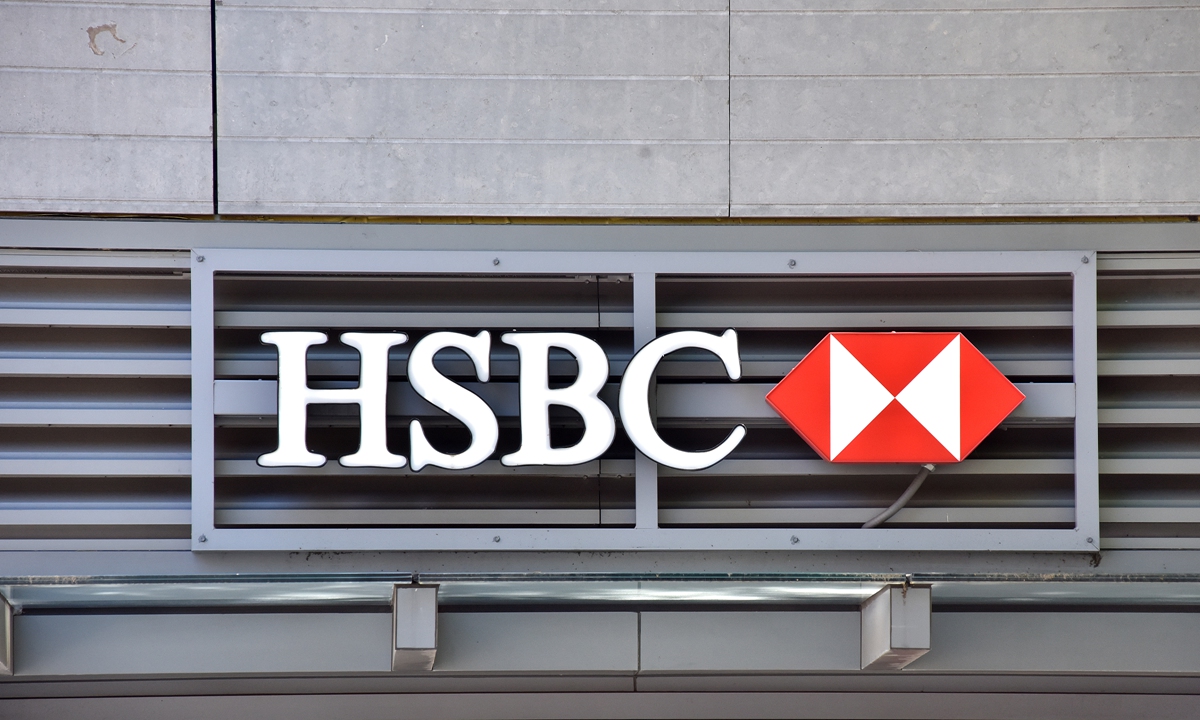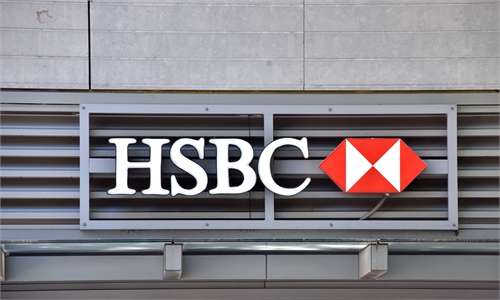
File photo: HSBC Photo: VCG
Benefiting from China's quick economic rebound from the COVID-19 pandemic, HSBC on Tuesday reported a better-than-expected 36-percent drop in third-quarter profit. Britain's largest bank now intends to increase its investment in the Guangdong-Hong Kong-Macao Greater Bay Area, though the controversy over its violation of China's national interests continues.
According to HSBC's earnings release, pre-tax profit fell about 36 percent year-on-year to $3.1 billion in the quarter. Revenue fell 11 percent to $11.9 billion.
"These were promising results against the backdrop of the continuing impact of COVID-19 on the global economy. I'm pleased with the significantly lower credit losses in the quarter, and we are moving at pace to adapt our business model to a protracted low interest rate environment," Noel Quinn, chief executive of HSBC, said in a statement, noting the bank is accelerating its transformation and intends to increase investment in Asia, the Greater Bay Area and South Asia.
The better-than-expected financial report, with comparatively lower losses than other US and European banks, showed how the UK-based bank is benefiting from China's quick economic rebound from the pandemic, analysts said.
"China is the first major economy in the world to return to growth despite the pandemic. Being one of the most important markets for HSBC, the steady economic growth in the Chinese mainland underpins HSBC's business recovery," Dong Shaopeng, a senior research fellow at the Chongyang Institute for Financial Studies of Renmin University of China, told the Global Times on Tuesday.
However, the bank said geopolitical risks, particularly relating to "trade and other tensions between the US and China," remains heightened. More individuals or entities in Hong Kong could be put under Trump administration's "sanctioning list", Dong said.
"We are reviewing the operational impact of these developments," HSBC said, adding the forthcoming US presidential election could create more geopolitical uncertainty.
The bank acknowledged that investor and business sentiment in some sectors in Hong Kong remains dampened. For instance, the retail and leisure sectors are particularly affected by a slump in tourism.
"The financial impact to the (bank) group of geopolitical risks in Asia is heightened due to the strategic importance of the region, and Hong Kong, in particular, in terms of profitability and prospects for growth," HSBC said. It will continue to monitor the situation.
The company's explicit noting of the fallout of US sanctions signals that HSBC seeks to make clear its stance to the public and rally support from Chinese investors, observers said.
In August, HSBC did not cooperate with the US by maintaining the bank accounts of individuals who had been sanctioned by the US government. It also cut off access to accounts of executives of Next Digital, the parent company of the Apple Daily, suspected of violating China's national security law for Hong Kong. Some analysts called the decision "rational."
"The company made the right choice in not bowing to US pressure this time," Dong said. But he noted that from a long-term perspective, the reputation of the British bank was harmed by the reported collusion with the US government in the arrest of Huawei executive Meng Wanzhou.
"Not only Chinese investors but also global investors will take a cautious view in working with the bank," Dong said, noting that this will cast a shadow on HSBC's fourth-quarter revenue.
Recently, HSBC was absent from a list of banks underwriting China's US dollar-denominated sovereign bonds for the first time since 2017, further stirring concern about the bank's plight in the Chinese mainland market.


